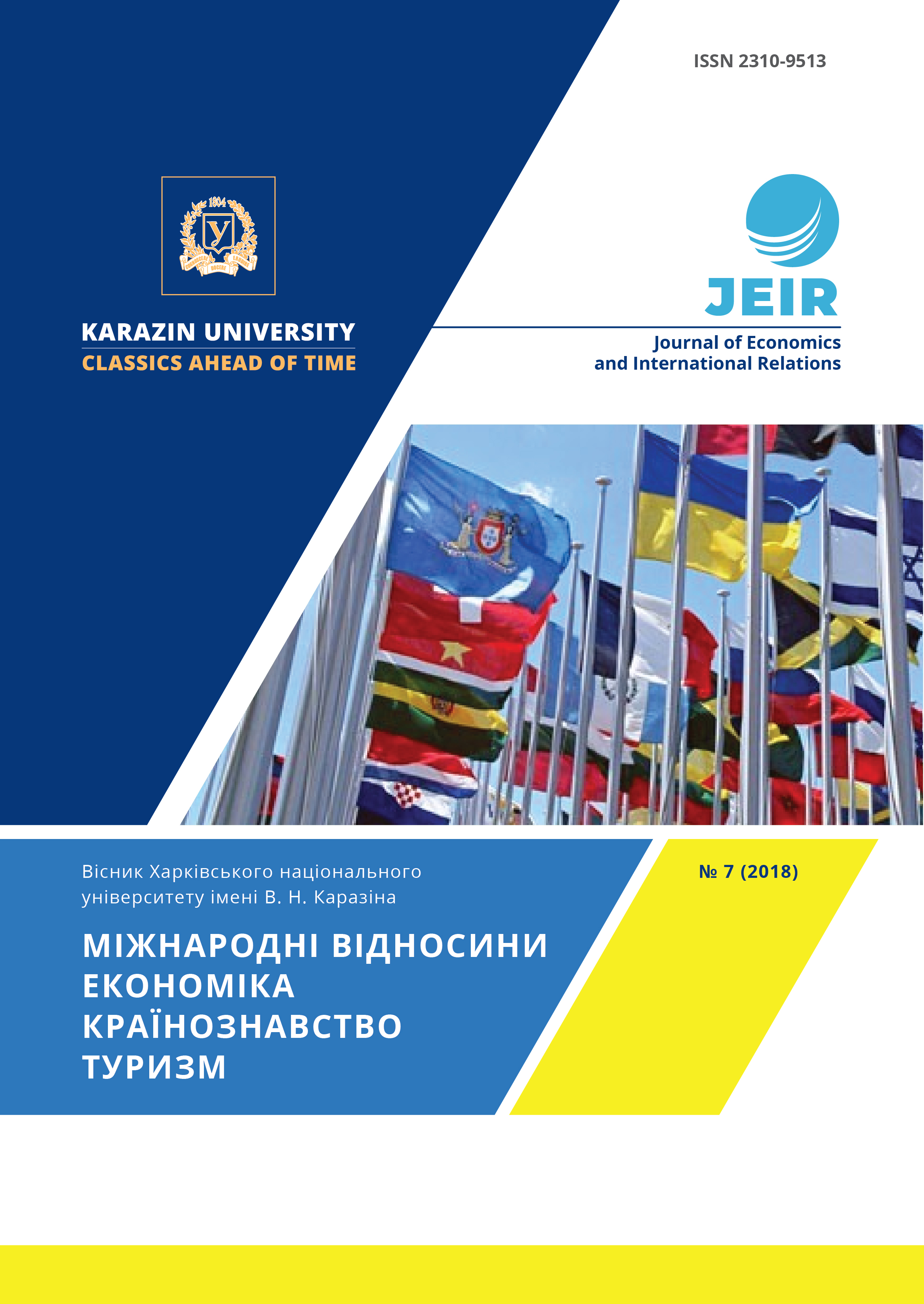The role of Germany in the innovative development of the EU: experience of crisis years
Abstract
The article studies the role of Germany in the innovative development of the EU during the last world economic and financial crisis of 2008-2009. The relevance of the study is determined by the fact that Germany, thanks to its competently formed innovation policy, the only one in the European Union managed to maintain the stability and growth of its national economy, and to maintain a high credit rating during the global crisis. The aim of the article is to analyze the role of Germany in the innovative development of the EU during the last world economic and financial crisis of 2008-2009.
The article concludes that despite the world economic and financial crisis, the German economy was the only one among the 27 EU economies, in particular in the euro area, to be reliable due to its correctly formulated innovation policy. Now Germany is entrusted with the reins of government to save the eurozone, as well as to pull other EU member states out of their debt hole
Downloads
References
Глобальний конкуpeнтний пpостіp: моногpафія. Кep. авт. кол. і наук. peд. О.Г. Білоpус. К.:КНEУ, 2007. 680 с.
Упpавління міжнаpодною конкуpeнтоспpоможністю в умовах глобалізації eкономічного pозвитку: моногpафія. За заг peд. Д.Г. Лук’янeнка, А.М. Поpучника; у 2-х т. Т. ІІ К.: КНEУ, 2006. 592 с.
Eкономічні пpоблeми ХХІ століття: міжнаpодний та укpаїнський виміpи. За peд. С.І. Юpія, Є.В. Савeльєва. К.: Знання, 2007. 595 с.
Цивилизационныe модeли совpeмeнности и их истоpичeскиe коpни. Под peд. Ю.Н. Пахомова. Киeв: Наук. думка, 2002. 632 с.
Дынкин А.А. Мировая экономика: прогноз до 2020 г. М.: Магистр, 2008. 429 с.
Хватова Т. Ю. Национальные инновационные системы зарубежных стран: цели и стратегии развития. СПб.: Изд-во Политехн. Ун-та, 2015. 298 с.
Право Европейского Союза. Новая европейская стратегия "Европа 2020". URL: http://eulaw.ru/content/307
Breznitz Dan. Innovation and the State: Political Choice and Strategies for Growth in Israel, Taiwan, and Ireland /Dan Breznitz. New Haven and London: Yale University Press, 2007. 262 p.
Drahos P.Information feudalism: Who Owns the Knowledge EconomyN.Y.: New Press, 2002. 253 p.
Europe 2020 Flagship Initiative Innovation Union. URL:: https://ec.europa.eu/research/innovation-union/pdf/innovation-union-communication-brochure_en.pdf
Kao J. Innovation Nation: How America is Losing Its Innovation Edge, Why It Matters, And What We Can Do To Get It Back. N.Y.: Free Press, 2007. 306 p.
Koo R.C. The Holy Grail of Macroeconomics: Lessons from Japans Great Recession. Singapore: Wiley, 2008. 296 p.
Porter M. U.S. Competitiveness 2001: Strengths, Vulnerabilities and Long-Term Priorities. Council on Competitiveness, 15 February 2009. 86 p.
The new High-Tech Strategy Innovations 2020 for Germany: URL: https://www.google.com.ua/search?q=High+tech+strategy+for+Germany&oq=High+tech+strategy+for+Germany&gs_l=psyab.12..0i22i30k1l4.652399.652399.0.653673.1.1.0.0.0.0.168.168.0j1.1.0....0...1.1.64.psy-ab..0.1.167....0.fHIm5B4TXKE
Warsh D. Knowledge and the Wealth of Nations: A Store of Economic Discovery. N.Y. W.W. Norton, 2007. 435 p
Authors who publish with this journal agree to the following terms:
- Authors retain copyright and grant the journal right of first publication of this work under the terms of a license Creative Commons Attribution License 4.0 International (CC BY 4.0).
- Authors are able to enter into separate, additional contractual arrangements for the non-exclusive distribution of the journal's published version of the work (e.g., post it to an institutional repository or publish it in a book), with an acknowledgement of its initial publication in this journal.
- Authors are permitted and encouraged to post their work online (e.g., in institutional repositories or on their website) prior to and during the submission process, as it can lead to productive exchanges, as well as earlier and greater citation of published work.




